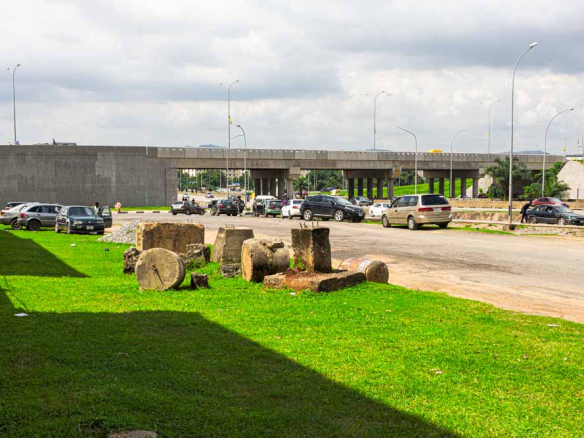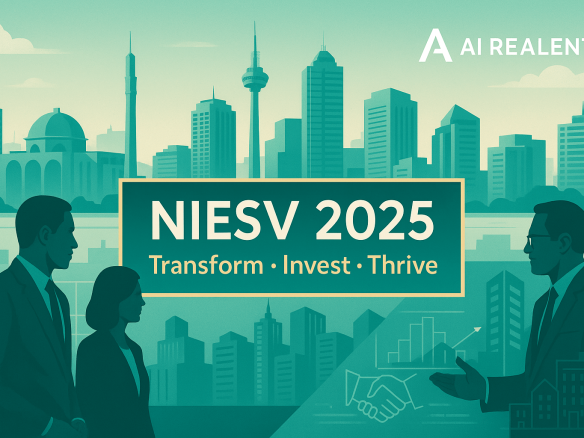For decades, oil and gas have been synonymous with Nigeria’s economy. However, a groundbreaking shift is underway: the real estate sector has overtaken oil and gas to become the nation’s third-largest industry. Preliminary findings from Nigeria’s ongoing GDP rebasing exercise and Consumer Price Index (CPI) updates reveal that real estate now occupies a more prominent place in the country’s economic hierarchy.

A Shift Decades in the Making
This development reflects years of gradual diversification efforts. As oil revenues fluctuated due to global price volatility, Nigeria increasingly sought to reduce its reliance on hydrocarbons. The real estate sector’s expansion was fueled by urbanization, a growing population, and an ever-rising demand for both residential and commercial properties. In cities like Lagos, Abuja, and Port Harcourt, the pressure to house more people and provide modern office spaces created a construction boom that lifted the sector to new heights.
Policy Support and Private Sector Momentum
The Federal Government’s economic diversification policies have played a pivotal role. Initiatives like public-private partnerships, infrastructure development, and affordable housing schemes have encouraged investment in real estate. Private developers have responded with enthusiasm, launching large-scale housing projects, luxury residential estates, and mixed-use developments that cater to Nigeria’s expanding middle class and urban professionals.
In particular, government-backed affordable housing programs have not only boosted construction activity but also helped address the nation’s housing deficit. As more Nigerians gain access to homeownership, the broader economy benefits through job creation, increased household spending, and a stronger real estate value chain.
Real Estate as an Investment Magnet
The rise of real estate has also attracted significant domestic and foreign investment. Institutional investors, private equity firms, and high-net-worth individuals have poured capital into the sector, drawn by its potential for stable returns and long-term growth. With Nigeria’s population expected to continue rising, demand for housing, retail spaces, and commercial offices shows no signs of slowing.
Moreover, the growth of infrastructure—such as new roads, bridges, and railways—has enhanced the attractiveness of once-remote areas. This improved connectivity has allowed developers to expand beyond traditional urban centers, unlocking new opportunities in emerging markets.
Challenges Ahead
Despite this remarkable progress, the path forward is not without obstacles. Land acquisition processes remain complex and costly, while regulatory frameworks can be cumbersome and inconsistent. Developers often face high construction costs due to import-dependent building materials and inflationary pressures. Additionally, access to affordable long-term financing remains a hurdle for both developers and prospective homeowners.
To sustain the sector’s upward trajectory, policymakers and industry stakeholders must address these challenges. Streamlining regulations, supporting local manufacturing of building materials, and creating more accessible financing options could help solidify real estate’s place as a cornerstone of Nigeria’s economy.
A New Economic Chapter
The real estate sector’s ascent represents more than just a shift in economic rankings. It signifies a deeper transformation in how Nigeria’s economy is structured. Moving beyond an oil-dominated narrative, the country is embracing a more diversified, resilient model that offers greater stability and opportunities for its citizens. As real estate continues to flourish, it stands as a testament to the power of targeted investments, supportive policies, and the enduring strength of Nigeria’s entrepreneurial spirit.
For decades, oil and gas have been synonymous with Nigeria’s economy. However, a groundbreaking shift is underway: the real estate sector has overtaken oil and gas to become the nation’s third-largest industry. Preliminary findings from Nigeria’s ongoing GDP rebasing exercise and Consumer Price Index (CPI) updates reveal that real estate now occupies a more prominent place in the country’s economic hierarchy.
A Shift Decades in the Making
This development reflects years of gradual diversification efforts. As oil revenues fluctuated due to global price volatility, Nigeria increasingly sought to reduce its reliance on hydrocarbons. The real estate sector’s expansion was fueled by urbanization, a growing population, and an ever-rising demand for both residential and commercial properties. In cities like Lagos, Abuja, and Port Harcourt, the pressure to house more people and provide modern office spaces created a construction boom that lifted the sector to new heights.
Policy Support and Private Sector Momentum
The Federal Government’s economic diversification policies have played a pivotal role. Initiatives like public-private partnerships, infrastructure development, and affordable housing schemes have encouraged investment in real estate. Private developers have responded with enthusiasm, launching large-scale housing projects, luxury residential estates, and mixed-use developments that cater to Nigeria’s expanding middle class and urban professionals.
In particular, government-backed affordable housing programs have not only boosted construction activity but also helped address the nation’s housing deficit. As more Nigerians gain access to homeownership, the broader economy benefits through job creation, increased household spending, and a stronger real estate value chain.
Real Estate as an Investment Magnet
The rise of real estate has also attracted significant domestic and foreign investment. Institutional investors, private equity firms, and high-net-worth individuals have poured capital into the sector, drawn by its potential for stable returns and long-term growth. With Nigeria’s population expected to continue rising, demand for housing, retail spaces, and commercial offices shows no signs of slowing.
Moreover, the growth of infrastructure—such as new roads, bridges, and railways—has enhanced the attractiveness of once-remote areas. This improved connectivity has allowed developers to expand beyond traditional urban centers, unlocking new opportunities in emerging markets.
Challenges Ahead
Despite this remarkable progress, the path forward is not without obstacles. Land acquisition processes remain complex and costly, while regulatory frameworks can be cumbersome and inconsistent. Developers often face high construction costs due to import-dependent building materials and inflationary pressures. Additionally, access to affordable long-term financing remains a hurdle for both developers and prospective homeowners.
To sustain the sector’s upward trajectory, policymakers and industry stakeholders must address these challenges. Streamlining regulations, supporting local manufacturing of building materials, and creating more accessible financing options could help solidify real estate’s place as a cornerstone of Nigeria’s economy.
A New Economic Chapter
The real estate sector’s ascent represents more than just a shift in economic rankings. It signifies a deeper transformation in how Nigeria’s economy is structured. Moving beyond an oil-dominated narrative, the country is embracing a more diversified, resilient model that offers greater stability and opportunities for its citizens. As real estate continues to flourish, it stands as a testament to the power of targeted investments, supportive policies, and the enduring strength of Nigeria’s entrepreneurial spirit.





Join The Discussion